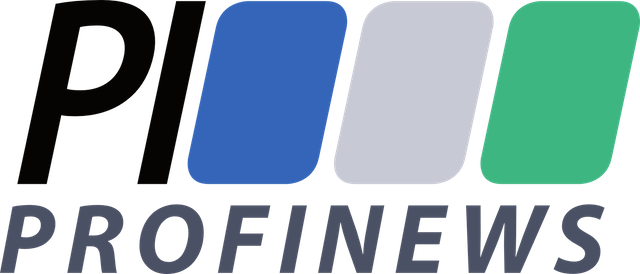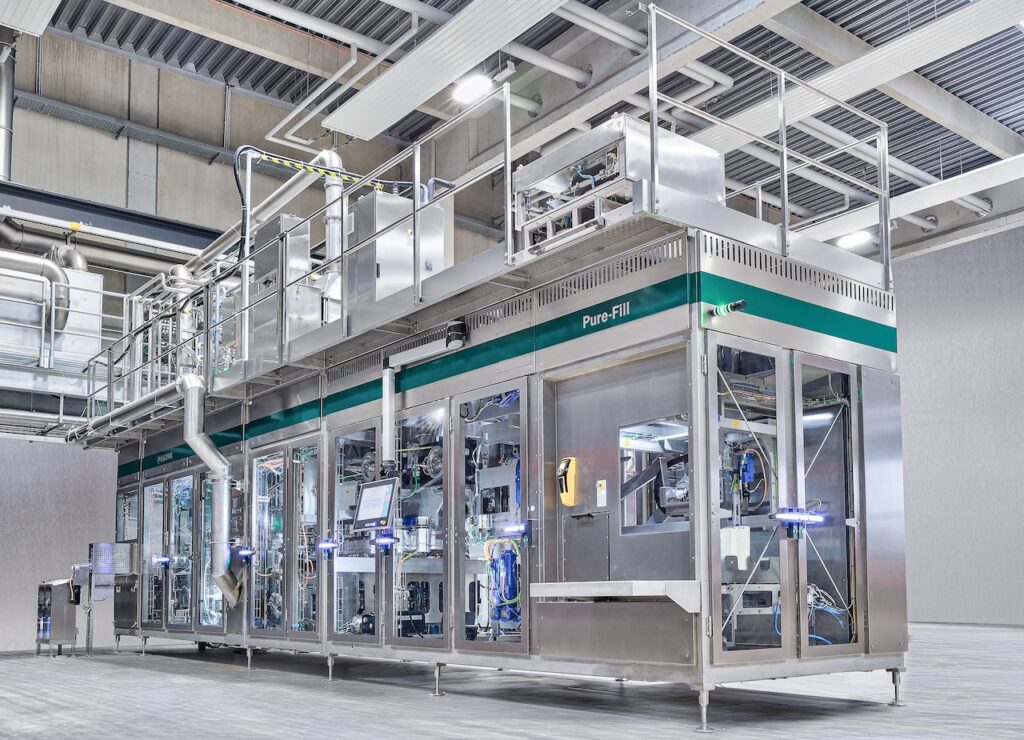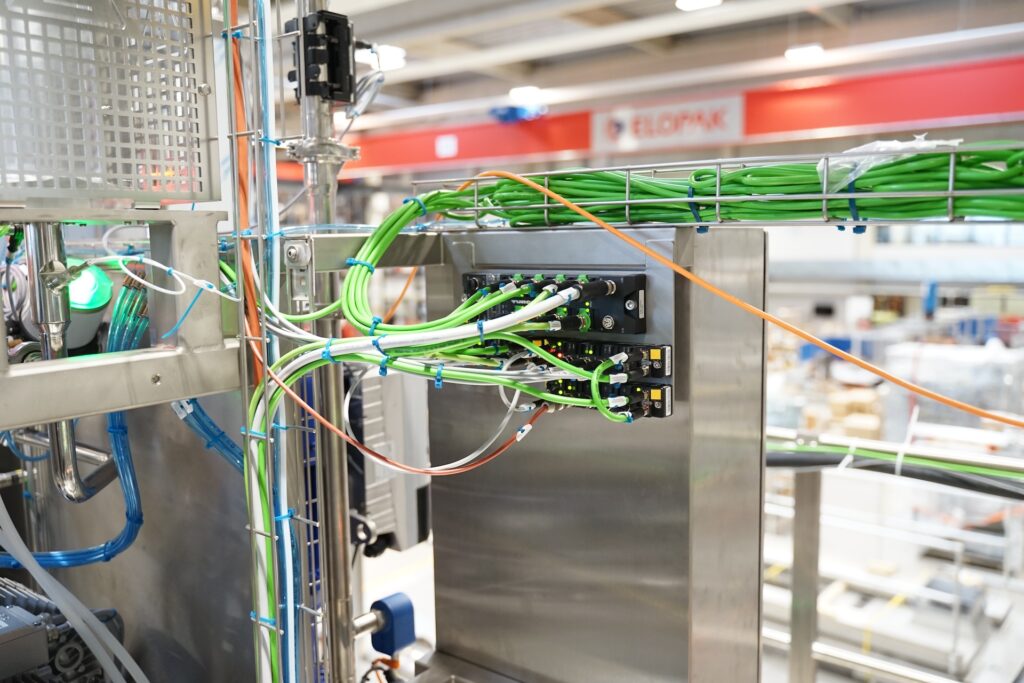AMCI
Webinar: MRP – Media Redundancy Protocol Tutorial
AMCI’s Electrical Engineer, Aladin Sabanovic, presents this 2-part tutorial where he covers an introduction to network topologies, explains a basic concept of a ring topology utilizing Media Redundancy Protocol (MRP), and talks about practical implementation of a ring topology based on MRP.
Turck
Filling Perfection
Elopak develops and produces filling machines for beverage cartons in Mönchengladbach. The packaging specialist uses IO-Link as the basic technology for the automation of its new Pure- Fill machine platform. The decision to choose Ethernet and network components from Turck was based on their flexibility as well as the simple wiring and seamless integration in the PROFINET engineering. The ultracompact multiprotocol I/O modules TBEN-S2-4IOL, -4AI and -8DXP, as well as the TBEN-LL-SE-M2 Ethernet switch were particularly impressive.
Everyone has probably held it in their hands before: the “Pure-Pak” beverage carton from Elopak. As one of the world’s leading system suppliers of carton packaging and filling machines, Elopak from Spikkestad, Norway, offers innovative packaging solutions made from renewable, recyclable and sustainably sourced materials. The German subsidiary Elopak GmbH develops and produces filling machines at its Mönchengladbach site. The highly specialized systems open out the carton, dose the liquid and fill it aseptically in order to finally seal the beverage cartons airtight. The systems are self-cleaning without the need for any dismantling. The beverage cartons are filled directly at the installation site in compliance with the highest hygiene standards.
New Machine Generation with Wide Application Range
The new Pure-Fill machine platform, based on the predecessor model E-PS120 A, is designed to be particularly flexible and adaptable to suit customer requirements. “Our primary goal was a modular machine that can be easily adapted to specific customer requirements while retaining the same overall design,” explains Horst Klesse, manager electrical design, product & development at Elopak. The new filling machine platform must be flexible in order to cover a wide range of applications – beverages with a low acid content such as milk or those with a high acid content such as fruit juices, in different volumes such as one or two-liter cartons, at filling speeds of up to 14,000 beverage cartons per hour and production on two to five lanes.
More Flexibility with Same Footprint
When integrating IO-Link into the machine platform, the overall size of the system should remain the same despite the increased flexibility. Elopak already used IO-Link to some extent in the predecessor machine in order to reduce wiring and commissioning costs. IO-Link was used here in the so-called process node, which is located at the top of the machine and controls all media and product flows with 34 IO-Link enabled valve heads. Thanks to IO-Link, only eleven cables had to be connected to the control cabinet in the process node instead of the original 375 individual wires and 73 cables. “In the new platform, we wanted to use IO-Link consistently throughout the entire machine, but the size of the master modules previously used was a problem,” says Horst Klesse, describing a challenge during development. “Devices without an IO-Link connection also had to be integrated into the system.”
Communication problems with the control of the valve heads presented the team with a further challenge. “This previously led to considerable additional work for the software engineers during programming and commissioning,” says Klesse. “As a result, we looked for an alternative solution.” The diameter of the M12 supply cables of the IO-Link masters previously used meant that they were also too rigid to connect modules placed very close together.
Read the Full Application Story Here
Hilscher
Multiprotocol-capable PC Cards for Industrial Communication
Manufacturers of PC-based systems are faced with the major challenge of keeping up with the ever shorter innovation cycles of industrial communication in its full variance while at the same time needing to concentrate on their core business. The challenges for manufacturers of PC-based systems in industrial automation are becoming ever greater: In line with Moore’s Law, the market is demanding ever smaller devices or systems with increasing functional density and efficiency, as well as accelerated innovation cycles. On the manufacturer side, however, resources are limited, both in terms of hardware and software development as well as complementary services. Nevertheless, they must be able to develop high-performance results with a short time-to-market and rapid return on investment (ROI). One solution to this dilemma is to use partner technologies and implement function modules optionally and on demand instead of equipping a system with all functions from the outset. This allows manufacturers of PC-based systems to concentrate efficiently on their core competencies and focus on their core business. The supplier benefits from the technological partnership due to the lower design and planning costs of its products, while the customer is happy about lower storage costs for compact and universally applicable components.
The cifX PC cards from Hilscher are function modules that equip PC-based systems with industrial communication and thus enable the automation of systems and plants. Users can choose freely between PROFIBUS, PROFINET and many more industrial fieldbus and Real-Time Ethernet protocols. Learn more here.


